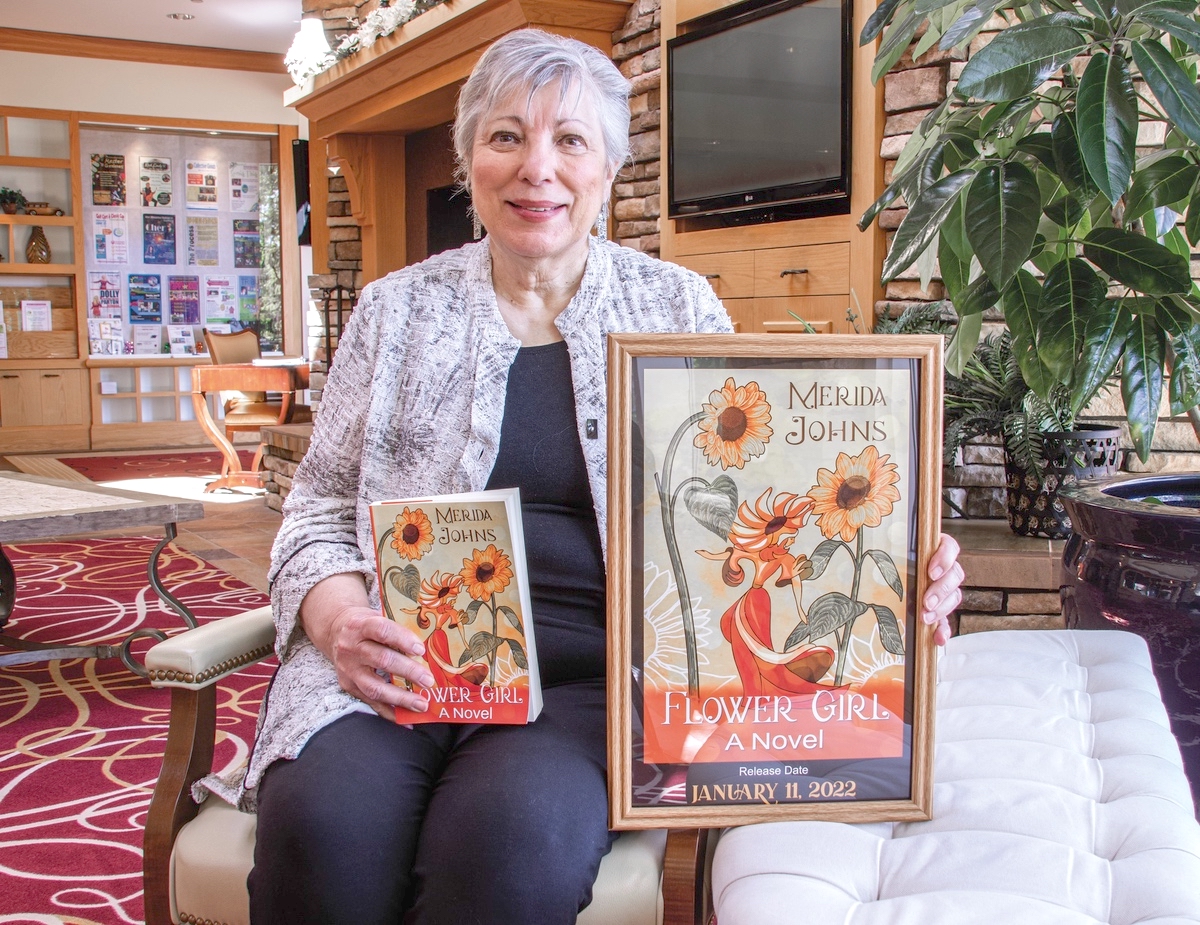Women’s fiction author and former life coach Merida Johns took a leap of faith in 2017 when she decided to transition from publishing academic literature to writing fiction upon being challenged to do so by one of her colleagues during a conference call.
“The other [life] coaches and I were talking about how best to disseminate information about leadership and how to have a flourishing life and one of the coaches asked me about writing a book on leadership,” Johns said. “I really wanted to take the concept of leadership and positive psychology and self-awareness and flourishing lives, and I wanted to embody those concepts in stories looking at how ordinary folks, ordinary people, really face challenges.”
Almost three years later, at the age of 71, Johns had published her first fiction novel, Blackhorse Road, but it was her second novel, Flower Girl, that garnered her international recognition for its cover design.
Johns decided to self-nominate Flower Girl for a chance at winning an Independent Publisher Book Award (IPPY), as she had gotten positive feedback from her readers regarding the book’s cover.
“I knew it was a long shot because usually there [are] around 4,500 to 5,000 entries and it’s worldwide, but the thing was, I really had real confidence for the cover design because the designer, Ruth Miller, really did a unique, beautifully conceived cover and it really captured the essence of the Flower Girl story,” explained Johns.
Shortly after, Johns received news that she had won the 2022 Bronze IPPY award for “Best Fiction Cover Design,” in which only three authors or publishers are selected as winners each year among the thousands of nominees.
While Johns stated she took a risk by becoming a fiction author, she is grateful to be able to use her past experiences as a teacher, academic advisor, and life coach as inspiration for her books.
“I’m still continuing through my stories, hopefully, to help people become their best selves. What I found which is so rewarding in fiction, is that people have contacted me after reading either one of my books…Just having that is worth the risk to me to jump in and do this fiction writing,” said Johns.
The process of writing books doesn’t just benefit her readers, says Johns, but it also has therapeutic effects for herself as well.
“Typically, with fiction, I think there’s a benefit of creating what I’ll call a cohesive narrative. Creating this plot and everything that goes around with that. Then being able to kind of shift perspective. You know, what is the character saying? When are the various characters speaking? What their view is? I think that there’s a real benefit to that and for myself—and I think this is true about others, is a lot of us struggle with how do we have compassion for others or how do we forgive others,” she said. “I would say the therapeutic benefits for authors for doing this is it allows you [the] freedom to really start to explore a number of underlying conditions in life that most people go through.”
As for anyone looking to become an author, Johns states that it is vital to have a team of professionals to oversee drafts of the writer’s work.
“Of the fundamental things you need to do is read, read, read and I have to say since I’ve started writing in fiction is that I have read more fiction than I ever have in my life,” said Johns. “The other thing to improve your writing skills is to write, write, write, and to critique it. I took seven courses in fiction and copyediting through the University of California in San Diego, virtually. I really recognized when I started that even though I had written a lot, I hadn’t written fiction. I really had to be humble and say I need to learn more and have to do better.”
To form such engaging stories, Johns described a method in which she focuses on writing her characters first before the plot by answering 60 questions about the character.
“Answering the 60 questions you can have a situation rise then you go back and say ‘How would this character respond to this particular situation,’ or ‘What’s prohibiting the character?’ ‘What’s their fear?’ What do they need to overcome?’ In many respects too, finding out their secret creates maybe a subplot or maybe it really creates the plot,” she said.
All in all, Johns sees becoming a fiction author as an extension of herself, adding that she encourages individuals with an interest in writing to jump in and go for it.
“If you always wanted to write a book, if for no other reason, the journey of writing has therapeutic benefits. It helps you create that story. It becomes a really enriching part of life. Whether it’s fiction or anything else, just do it because the journey itself is rewarding,” she said.
For more information on Johns and her books, visit MeridaJohnsAuthor.com.




